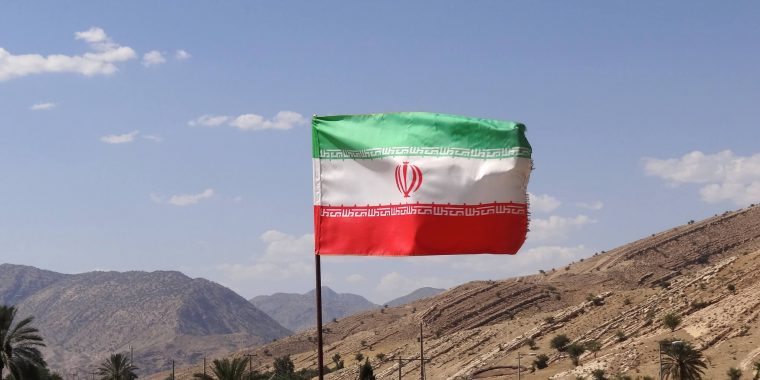So Iran and the United States reached a deal about the nuclear stuff recently. Thus far, I have read many opinions and analyses about this historic event: Israel calls it a mistake of gigantic proportions, US and Iran are considering it to be a step in the right direction, rest of the world is watching, commentators and experts are either happy or unhappy depending on their political stance, and so on.
As of now, it is too early to judge whether the nuclear deal between USA and Iran is a good thing to happen or not. However, pros and cons aside, one thing is certain: with the new Rouhani government in place, the Islamic Republic is indeed headed towards some noticeable changes.
A Small Comparison
Back in 1991, Mikhail Gorbachev tried to open up and rejig USSR’s political system. The outcomes remain debatable even to this day. Question: is Rouhani attempting to do the same with Iran? Is it logical, or at least possible, to view Iran’s recent nuclear deal with US in this light?
Of course, there remain many differences between Gorbachev and Rouhani. To begin with, Gorbachev was sitting at the helm of political power back in USSR, whereas Rouhani, even though technically he might be the elected leader, does not possess ‘supreme’ authority. In fact, Rouhani came to power primarily because of the fragmented state of Iranian right-wingers during the previous election.
Yet, just like USSR, present-day Iran too was born out of a revolution. The Islamic Revolution was in many ways similar to the Bolshevik Revolution, even though the former sought a solution in political Islam whereas the latter resorted to Communism. Next, whatever set of “allies” that Iran has nowadays are similar to what USSR had back when it was alive. Compare Bashar’s Syria with Soviet-era Cuba or Yemen — civil war, apparently, emerges as a throbbing business in either case. Lastly, it goes without saying that the geo-political and strategic situation that Iran enjoys is not very different from what USSR had.
However, strategic prowess or ideological ability is not enough to answer a hostile neighborhood that includes the likes of Saudi Arabia and Israel. A minor reform or change in stance from the side of Iran will be helpful primarily for the Islamic Republic itself.
Need of The Hour
How did Gorbachev manage to push for reforms in USSR? The answers are many, ranging from the inefficiency of the Soviet bureaucracy to the role played by US President Ronald Reagan, as well as the master tactics of Gorbachev himself, wherein he stressed that whatever he was doing was for the benefit of the system.
Can Iran’s Rouhani do the same? For a start, we can say that he is already working towards dividing the conservative sections in Iran. Plus, with the recent nuclear deal with the US, Tehran is probably headed towards a position where it can view Washington as not just a foe but a potential negotiator. All that Rouhani needs now are few domestic reforms — possibly a small check over clerical sovereignty or a greater say in the role of the Revolutionary Guard.
However, this is where the difference between USSR and Iran becomes imminent. Gorbachev attempted domestic reforms because those were the need of the hour in his day — for Rouhani, major threat lies in potential sanctions or international isolationism. Even though Iran’s domestic affairs are not of divine nature, it can still manage to stand upright (and look good while doing so). Thus, if the country can avoid disastrous sanctions and other foreign threats, it is a fort well conquered. By striking a deal with the US, Rouhani and his team have, at least for the time-being, ensured that their country is not going the North Korean route.
A Final Comment
Back in 1989-91, Gorbachev discovered that being brave was not the answer to every question. Unfortunately for USSR and him, this discovery later paved the way for territorial liquidation.
However, Gorbachev never intended to kill Communism per se; yet his decision to allow civic associations, introduce electoral reforms and eliminate censorship did so. He never sought to discard the Soviet economic machinery; but market reforms undertaken by him also struck the death-chord for the economic model of USSR.
Iran does not need to go that route. All it needs a tinge of international acceptance — something that is possible if Uncle Sam is not openly hostile. In other words, Iran does not need deep-reaching political or economic reforms, but it does need diplomatic re-thinking. And this is exactly what Rouhani and his team have tried to do by signing the nuclear deal with USA.
This Iran-US nuclear deal not only compels Israel and Saudi Arabia to reconsider their stand vis a vis Iran, it also showcases the potential for a new era in Iran-US relations. It now remains to be seen whether this deal will provide the much sought-after diplomatic vaccine for Iran or it’ll just end up unleashing uncontrollable side-effects.
Featured Image: Adam Jones

